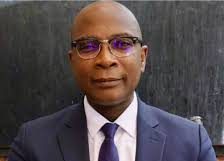By Forum News SL Staff Reporters
The Serra Leone People’s Party (SLPP) government headed by President Julius Maada Bio, on his inception to office, launched the Free School Quality Education (FQSE) programme with the ultimate aim of providing free education to pupils, targeting government and government-assisted primary and secondary schools in the country.
The Free education programme was designed to provide tuition-free education, supply of teaching and learning materials to pupils and schools, recruitment of more teachers, feeding of pupils, provision of infrastructural supports to schools including furniture, and the like.
The school fee subsidies initiative is part of the government’s Free Quality Education project meant to support primary and secondary schools’ administration to run and finance the operations of the schools.
However, a recent twist of events with the Government’s Free Quality Education project have put principals and other heads of schools of government and government-assisted schools in serious constraints over unpaid school fee subsidies for the second and third term of 2024/25 academic year; and they are very determined to withhold the results of pupils.
The government has been reluctant to pay school subsidies for both the second and third terms of the 2024/25 academic year in spite of mounting pressure from the Serra Leone Teachers’ Union, the National Conference of Principals of Secondary Schools (NCPSS), the National Council of Head Teachers (NaCoHT), the Nursery School Association (NSA), and the Technical Vocational Council.
Such a situation exposes government’s inability to fulfill finance its flagship programme- s the Free Quality Education- and to prioritise the needs of its citizens in developing the human capital.
It is very apparent that government officials send their children and other relatives abroad to access quality education, leaving majority of Sierra Leone’s children to struggle in accessing education in under-resourced and poorly managed schools.
The Sierra Leone Teachers Union (SLTU), which had previously issued ultimatum to the government over unpaid subsidies and has held several discussions with relevant Government institutions, appears to have gone silent on the issue after minimal results and lackluster attitude by the government to effect payments. The National Council of Head Teachers (NaCoHT) and the National Conference of Principals of Secondary Schools (NCPSS) have also gone dead on the issue, leaving many heads of schools to wonder what has gone wrong.
As the government has failed to pay these subsidies leading to the end of the academic year, heads of school who are feeling the brunt of the neglect as a result of the immense pressure from their creditors due to unpaid loans to run their schools, have vowed not to issue out report cards to their pupils until the fee subsidies are paid, and might re-open schools for the next academic year in September if it remains unpaid, regardless of SLTU, NCPSS and NaCoHT intervention on this issue.
‘‘Without funds to repay these loans, many school heads are under significant strain amidst litigation and penalties from their creditors’’ exclaimed one of the school heads in Western Area, adding that the Performance-Based Funding (PBF), which was provided by the World Bank to supplement the meagre fee subsidies and cushion the effects of the growing economic hardship on primary schools, has not been paid this year, leaving primary schools in a precarious financial situation.
The primary schools are also grossly under-financed as they only receive from the government as school fee subsidies a meagre sum of NLe 10 per child per term, while junior and senior secondary schools receive NLe 50 and NLe 60 per child per term, respectively.
The wide disparity in funding has left primary schools struggling to operate, exacerbated by the growing prices of goods and services in the country; and this amount has not been improved since the inception of the Free Quality Education project. It is widely considered inadequate with the situation further worsened by government’s failure to supply teaching and learning materials to schools for the past four (4) years. Such raises serious concerns about the government’s commitment to providing free quality education, as promised by the Bio administration which is his flagship programme.
The school administrators, teachers, parents and the pupils are bearing the brunt of the government’s inaction, putting the Human Capital Development of this nation in doubt.










